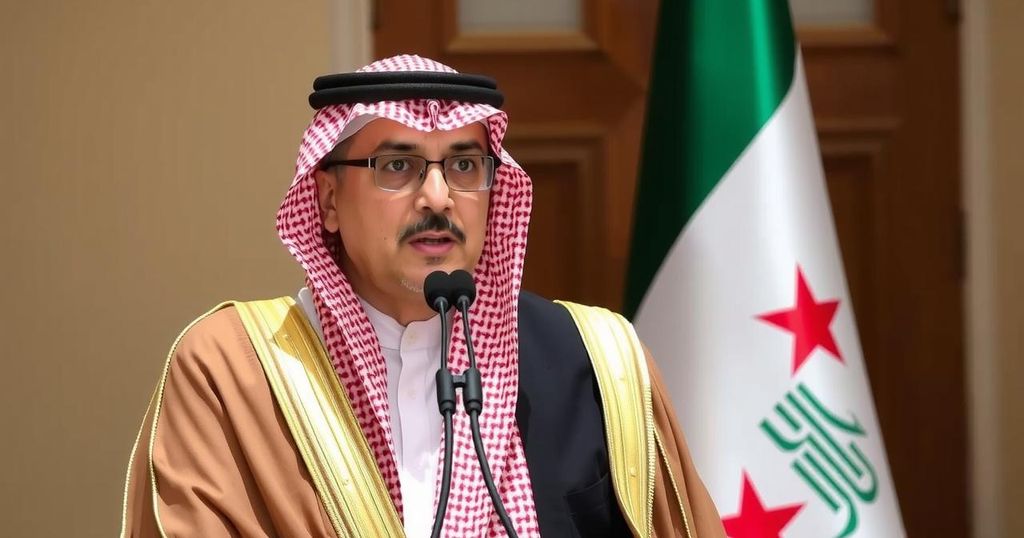Kuwaiti Foreign Minister Abdullah Al-Yahya visited Damascus to express Gulf solidarity with Syria and call for the removal of international sanctions. This visit follows a GCC meeting addressing Syria’s situation, emphasizing the country’s stability as integral to regional security. Al-Yahya met with new administration leader Ahmad Al-Sharaa as part of increased international engagement in Syria after the regime change.
On Monday, Kuwaiti Foreign Minister Abdullah Al-Yahya visited Damascus, delivering a significant message of solidarity from the Gulf Cooperation Council (GCC) towards Syria. He called for the international community to consider lifting the sanctions imposed on Syria, emphasizing that such measures have impacted the country’s stability. Al-Yahya noted that this visit is a direct outcome of a recent Gulf ministerial meeting held in Kuwait City, which discussed the ongoing situation in Syria.
Accompanying Minister Al-Yahya were officials who met with Ahmad Al-Sharaa, the new leader of the Syrian administration. This visit is part of a broader series of international delegations arriving in Syria to engage with the new leadership after the change in regime marked by the exodus of Bashar al-Assad, who had governed for nearly 25 years. Al-Yahya reaffirmed that Syria’s security is central to the overall stability of the region.
The context of this visit stems from a pivotal change in the Syrian political landscape following the ousting of Bashar al-Assad’s regime, which had faced significant opposition culminating in his departure from the country. As Kuwait presides over the GCC, its foreign minister’s visit signifies a concerted effort to unify Gulf states’ stance towards Syria and restore engagements that may have been hindered by international sanctions. This alignment suggests a potential shift in diplomatic relations and policy considerations regarding the Syrian crisis, with the GCC advocating for a reevaluation of existing sanctions.
In summary, the visit of Kuwaiti Foreign Minister Abdullah Al-Yahya to Damascus signals a notable shift in the Gulf’s diplomatic approach towards Syria, advocating for the removal of sanctions that have strained the country’s recovery. The delegation’s meetings with Syria’s new leadership underscore a collective desire within the GCC to support a stable and secure Syria, viewed as essential for regional stability. As relationships evolve post-Assad’s regime, the GCC’s actions might pave the way for greater political engagement and support for Syria’s restoration.
Original Source: news.az






